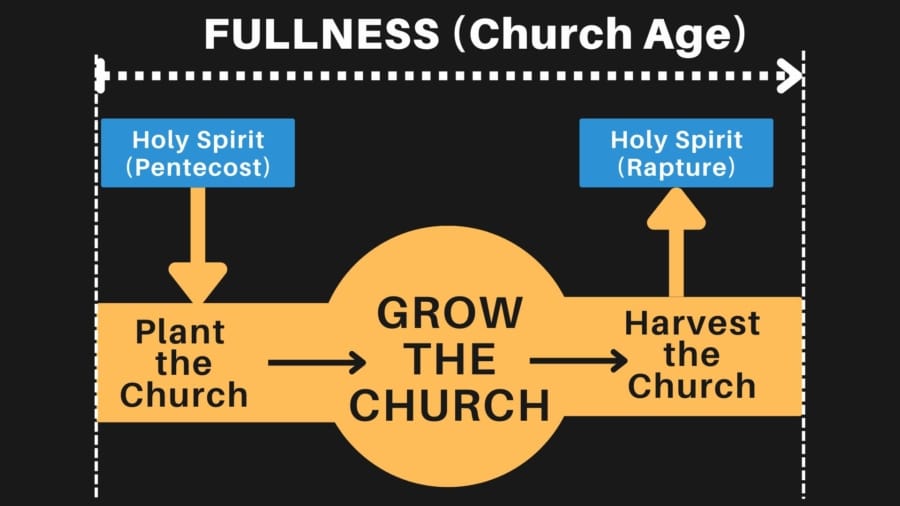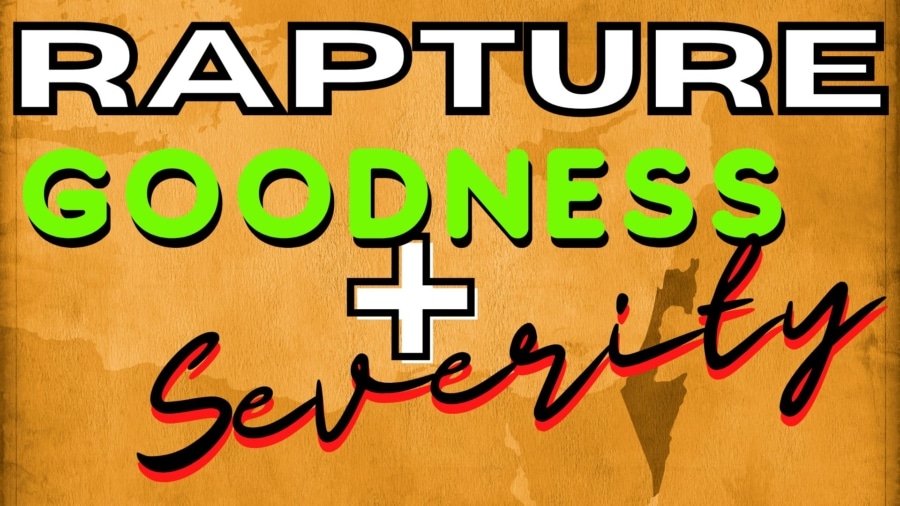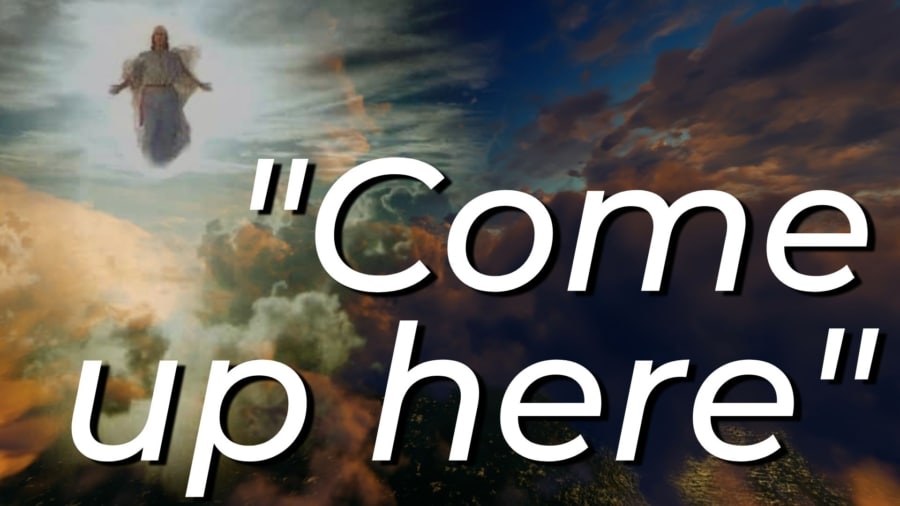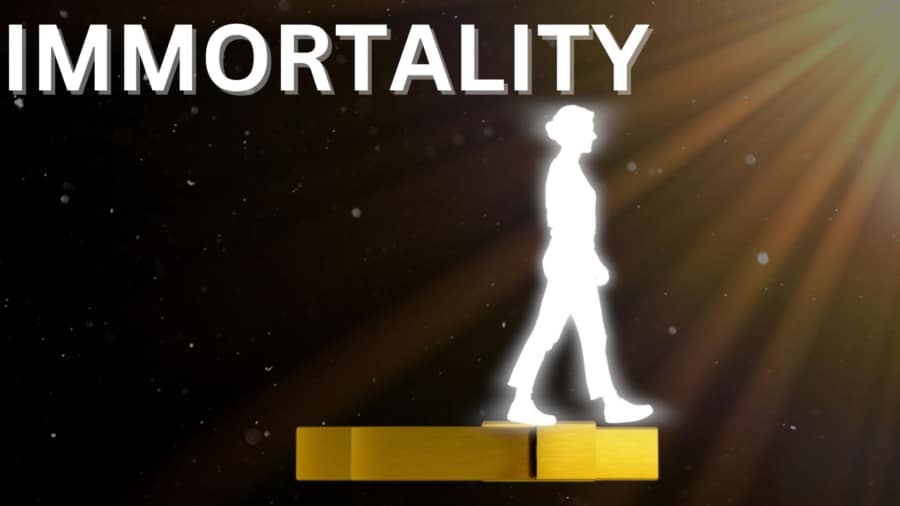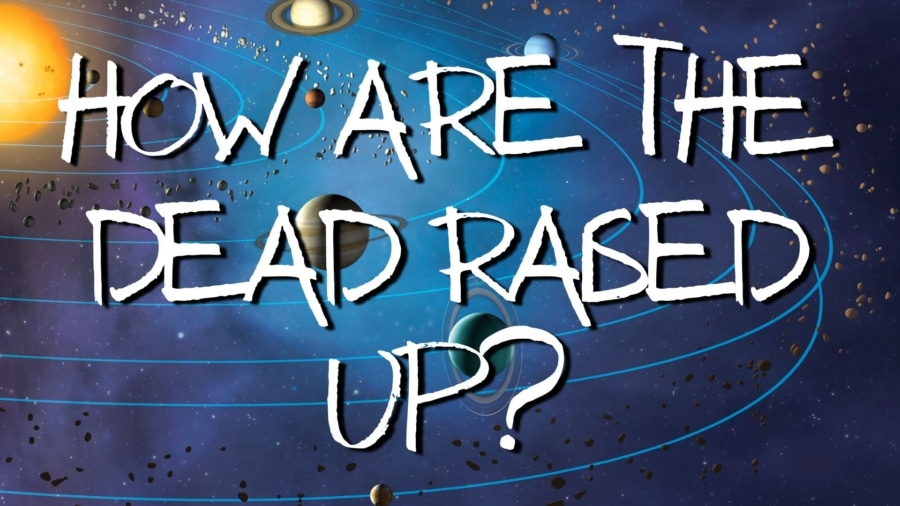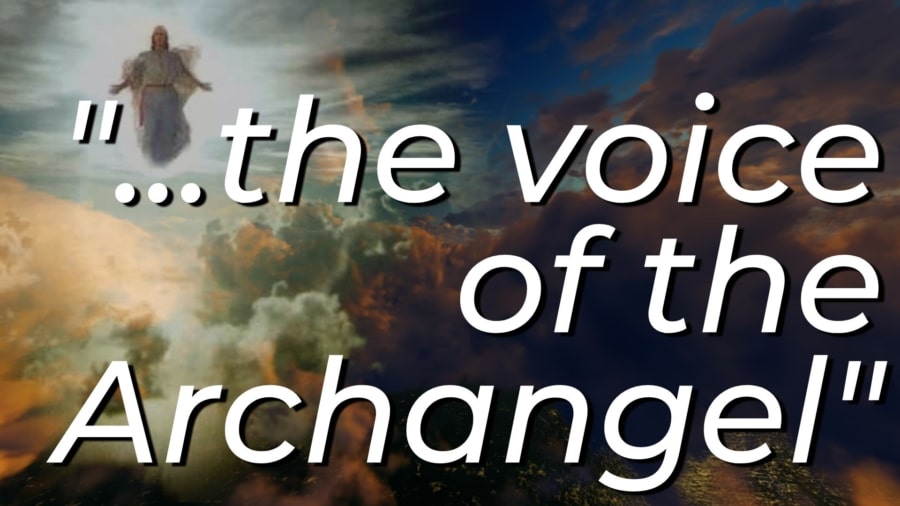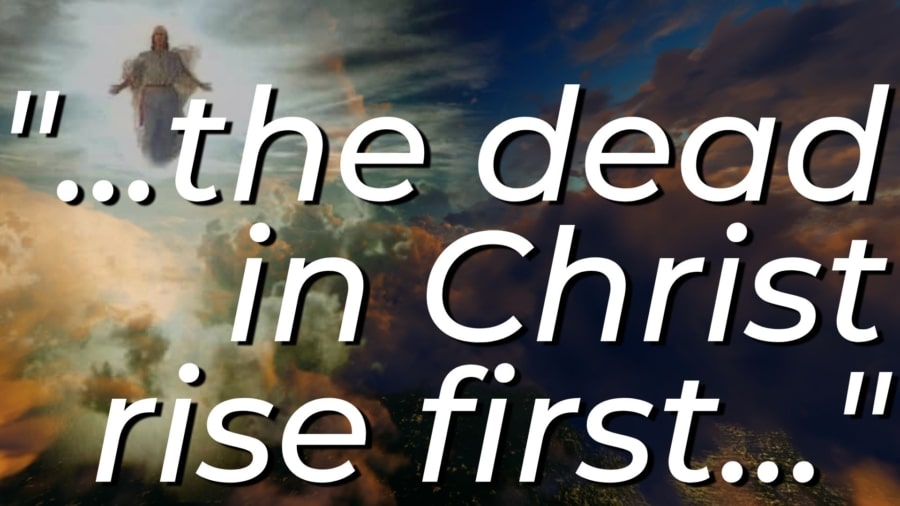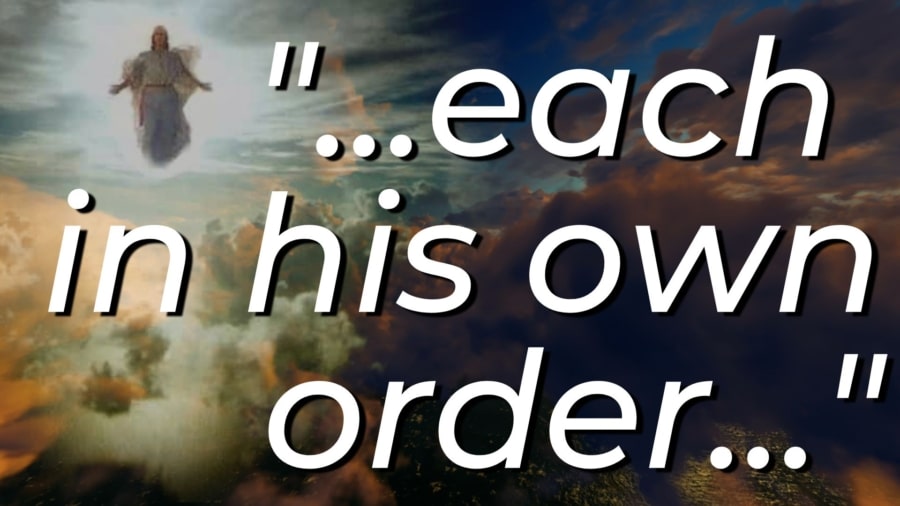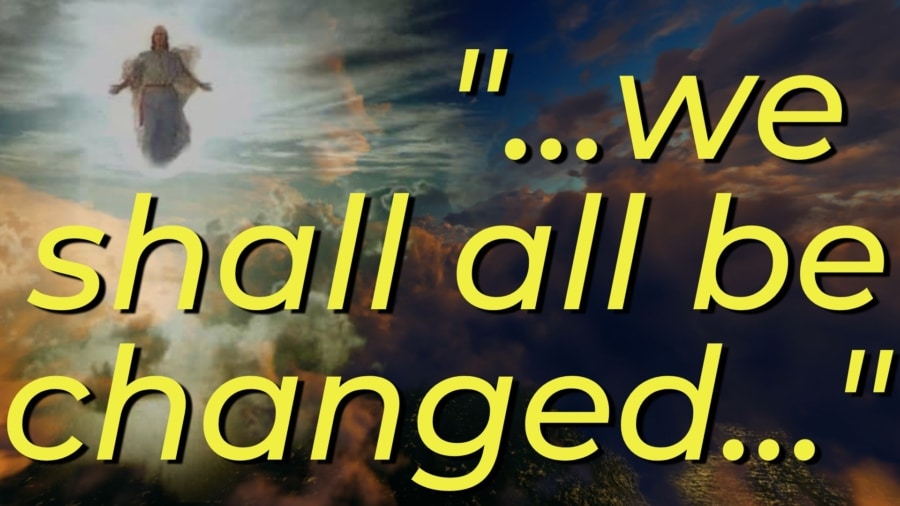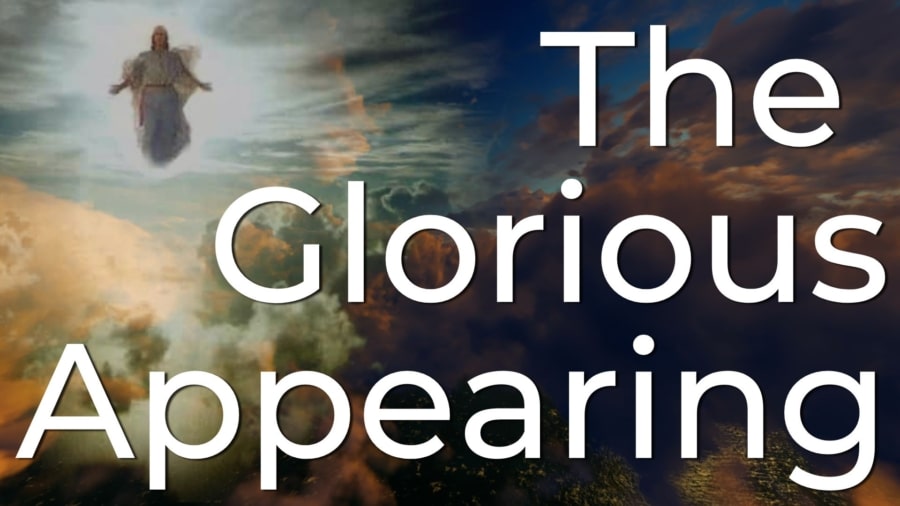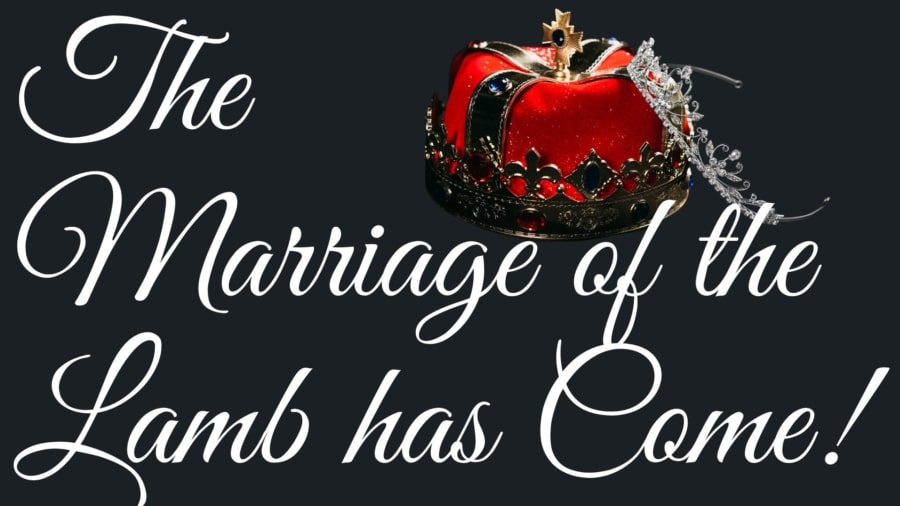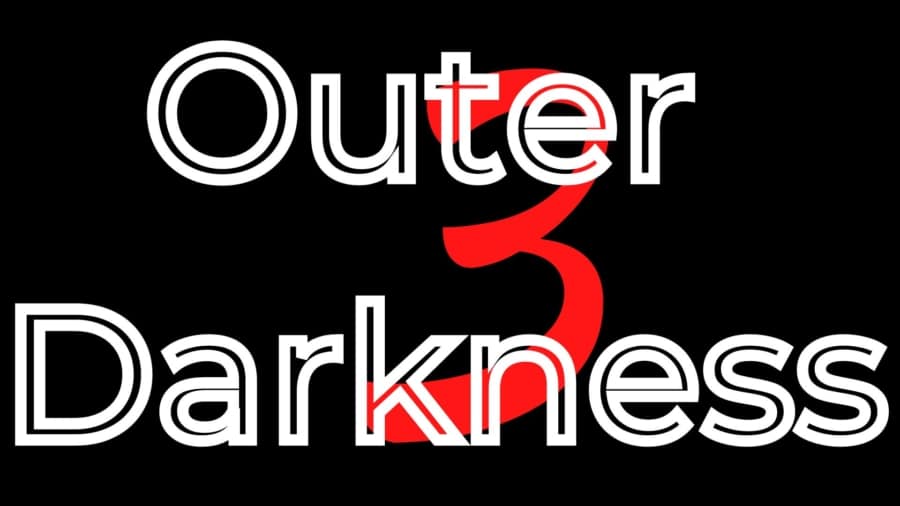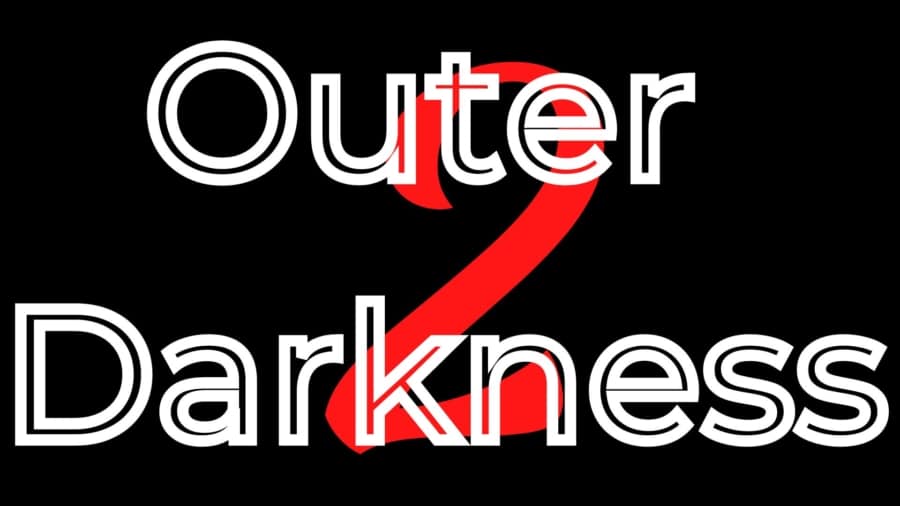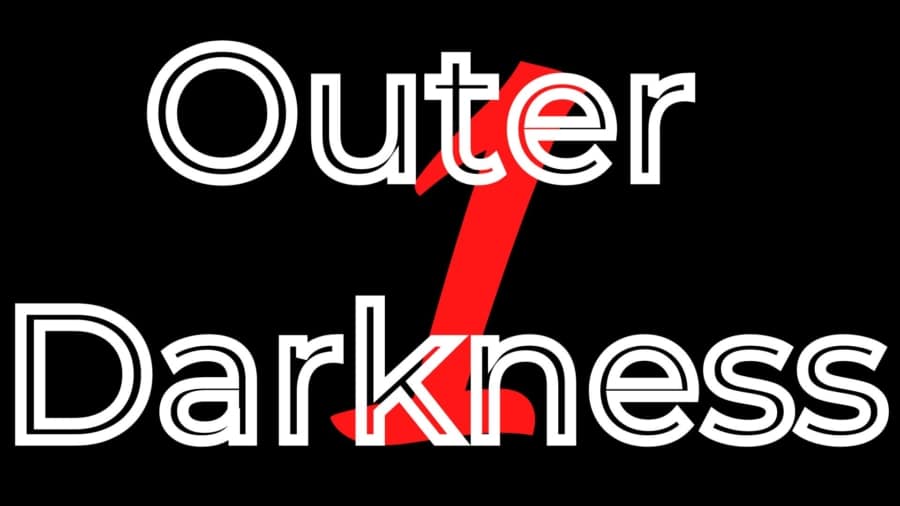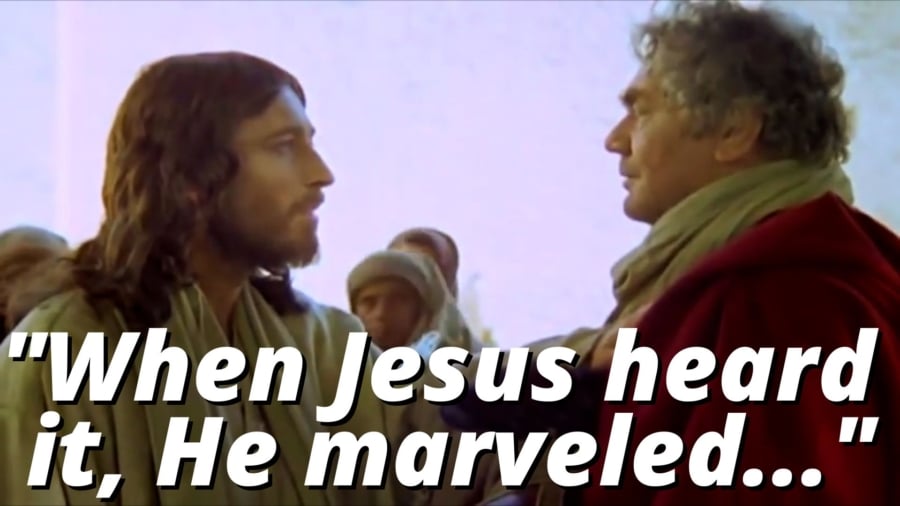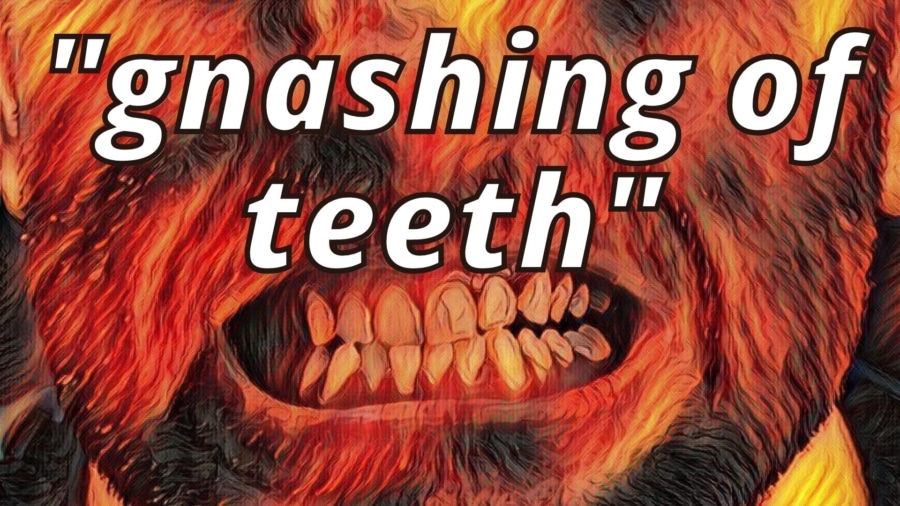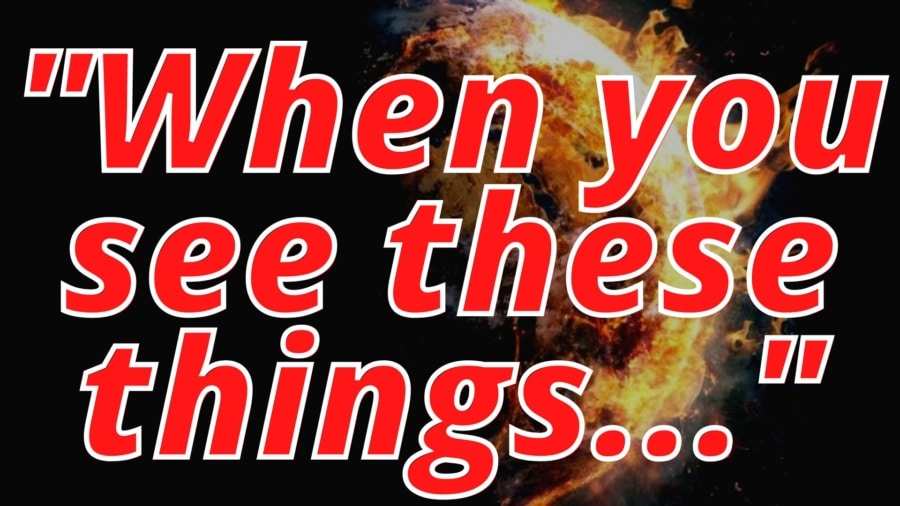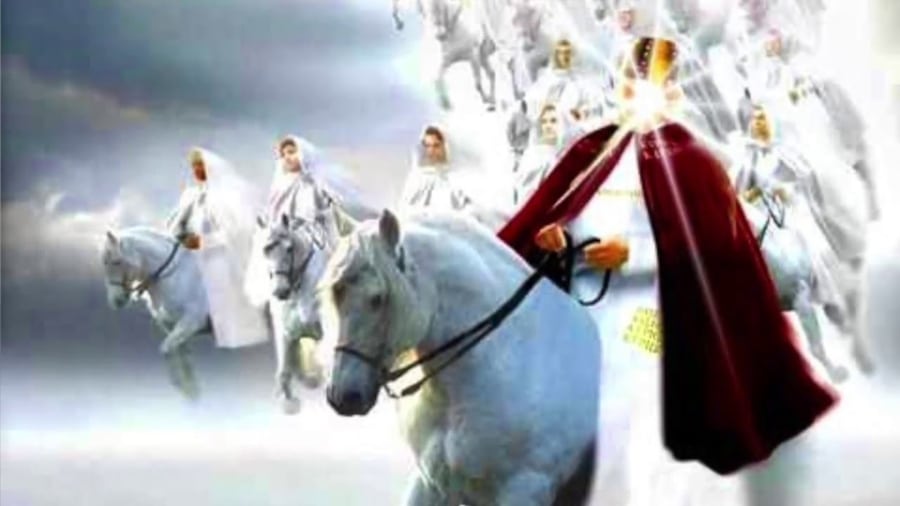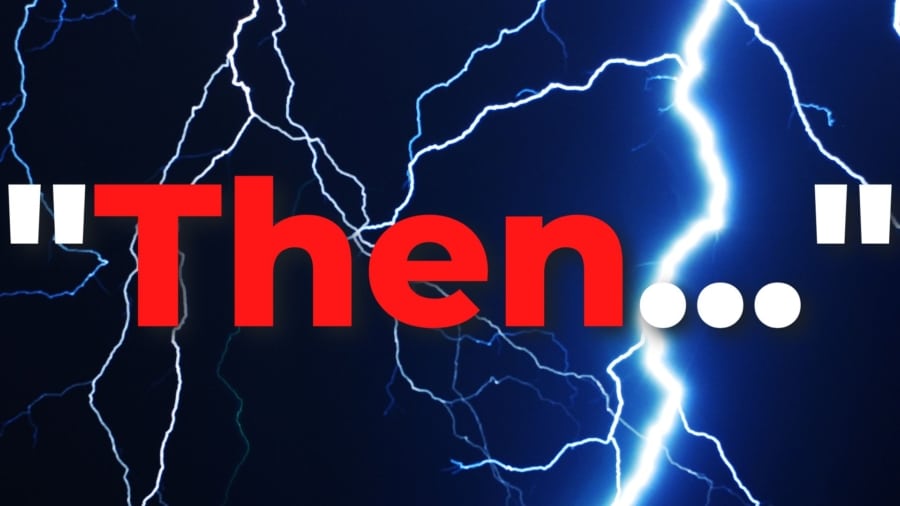Fellow Bible Students,
Enjoy the latest audio and video lessons posted recently:
Loading Content...
Share a Link to this Message
The link has been copied to your clipboard; paste it anywhere you would like to share it.
CloseGene Cunningham - November 16, 2022
"I will bless those who bless you" -- Mission Forgotten
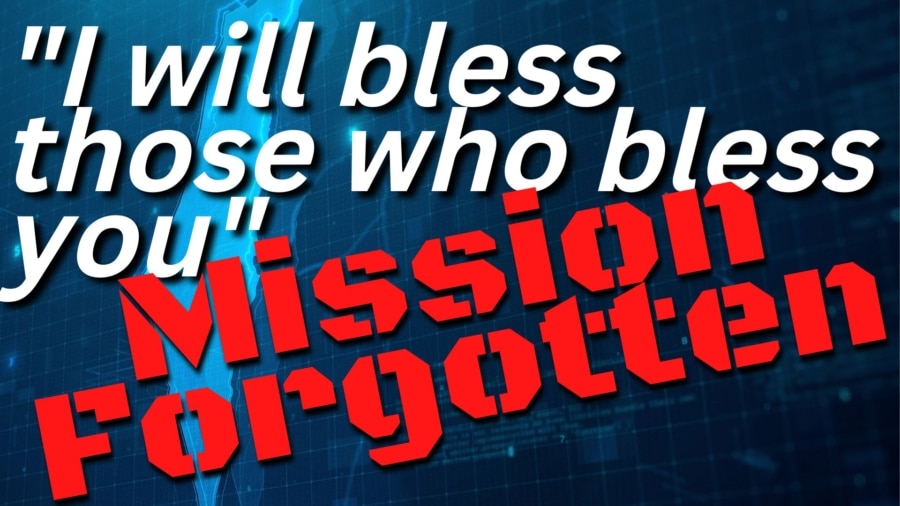
This video and the previous two describe the context and reason for "the blessed hope," the rapture of the Church. We have a few brief hours now before the rapture to embrace a divine mission, the “charter” of the church, if you will, that we've largely forgotten. That is the Christian’s responsibility to Israel. If we’ve believed in Jesus Christ, 1st Peter 2:5-9 tells us that we are “a royal priesthood.” Why are we a royal priesthood? Because the high priest is a King, namely, the Lord Jesus Christ, who is also the “King of Righteousness and the “King of Peace,” and the true Melchizedek. The Church is a priesthood chosen for a specific purpose under true Melchizedek. To start, we learn in the Book of Genesis that God called a man who would be the head of two races. Abraham would be the father of many nations, but really the head of two spiritual races. Abraham would have a “seed,” of which Paul tells us in Galatians 3:16 speaks of Christ. But that seed would be “more in number than the stars of the heavens and the sand of the seashore.” A “heavenly people” anticipated the church, and an “earthly people” anticipated the nation of Israel (and those who “enter into her fold,” including Gentiles of every other nation.) The “seed” would be heavenly and earthly, and ultimately it would all be one. As Jesus said in John 10:16, “one flock, one Shepherd,” yet distinct and unique, but brought together as one. In Genesis Chapter 14, there’s a story of nations hostile to Israel who come into the land. Abraham, of course, is living as a nomad. Five armies come into the land under Chedorlaomer, and they sweep through the land. And as they're snatching up captives, they take Lot and his family. Abraham hears about it. Genesis 14:13 says “One who had escaped came and told Abraham the Hebrew.” The word “Hebrew” means “the one who crosses the river.” And from Abraham comes a new Hebrew nation. He dwelt, “by the trees of Mamre,” which means “the teacher.” Abraham was staying at the trees of the teacher. Who's the teacher? Well, that is left for us to discover. Genesis 14:14-18 says, “Now when Abraham heard that his brother was taken captive, he armed his 318 trained servants, ... and he divided his forces against them by night, and his servants attacked them and pursued them as far as Hobah, which is north of Damascus. ... he brought back all the goods, and he brought back his brother Lot and his goods, as well as the women and the people. And the King of Sodom went out to meet him at the Valley of Shaveh (that is the King's Valley,) After his return from the defeat of Chedorlaomer and the Kings who were with him. Then Melchizedek, King of Salem brought out bread and wine ...” Isn't it interesting? 4000 years ago, a man steps on the scene to refocus Abraham, to deliver him from distraction, to deliver him from temptation. And he uses the same elements that Jesus used with the disciples in the upper room. Genesis 14:18 says Melchizedek "brought out bread and wine; He was the priest of the most high God, And he blessed him and said, ‘Blessed be Abraham of God, most high possessor of heaven on Earth, and blessed be God, most high, Who has delivered your enemies into your hand.’” Melchizedek blessed Abraham. What did God say in Genesis 12:3? “I will bless those who bless you and I will curse those who curse you.” And Melchizedek, who, I believe was Abram's mentor, the teacher who taught at the Oaks of Mamre, blessed Abraham. In Hebrews 5:1, we meet Melchizedek again: “For every high priest” not talking now about a general priesthood, but the High Priest, “is taken from among men is appointed for men in things pertaining to God.” High priests do have the role of standing between God and man, but the primary role of any priest is intercession. Genesis 5:3-6 says, “Because of this, he is required as for the people, so also for himself to offer sacrifices for sins. And no man takes this honor to himself. But he who is called by God, just as Aaron was.” Now, the crux is verse five. “So also, Christ did not glorify himself to become a high priest, but it was He who said to Him, ‘You are my son today. I have begotten you.’” We know from the Psalms that this was spoken to Jesus Christ after the resurrection. “This day I have begotten you. And he also says in another place, you are a priest forever.” This is a quote from Psalm 110:4. Jesus Christ became the High Priest of the Order of Melchizedek on His resurrection to form a priesthood of a new order. This new order did not follow the Levitical priesthood. It was not of the lineage of the Levitical priesthood, and had a completely different purpose. The priesthood of the order of Melchizedek, takes its cue from that shadowy, mysterious figure, who comes on the scene in Genesis 14. At at a critical time in the beginning of the history of the Hebrew people, Melchizedek brings focus and devotion and dedication. Let's look at Hebrews Chapter seven. Hebrews 7:1 says, “This Melchizedek King of Salem, priest of the most high God who met Abraham, returning from the slaughter of the Kings and blessed him to whom also Abraham gave a tenth part of all, first being translated king of righteousness, and then also King of Salem, meaning king of peace without father, without mother, without genealogy, having neither beginning of days nor end of life, but made like the Son of God.” This is not saying that he didn't have a mother and a father or a human earthly line. It simply means that because the Scripture shrouds him in mystery, we don't know where he came from, nor know his lineage. “He has been made like the Son of God” by virtue of how he's presented. He is not the Son of God. Hebrews 7:4-7 continues, “Now consider how great this man was, to whom even the Patriarch Abraham gave a tenth of the spoils. And indeed, those who are the sons of Levi, who receive the priesthood, have a commandment to receive tithes from the people according to the law that is from their brethren, though they have come from the loins of Abraham, but he whose genealogy is not derived from them, that is not of the Leviticus order, receive tithes from Abraham and blessed him who had the promises. Now beyond all contradiction, the lesser is blessed by the better.” What was it God, said to Abraham, again? "He who blesses you I will bless and he who curses you, I will curse." And the author of Hebrews says, "the lesser is blessed by the greater. Here mortal man receives ties, but there he receives them, of whom it is written that he lives. And even Levi, who receives tithes, paid tithes through Abraham, so to speak, or he was still in the loins of his father when Melchizedek met him.” Seven principles of the Melchizedek priesthood (from Hebrews Chapter 7) The priesthood is to bless the nation of Israel. You and I are not called to be their judge. We are called to be a priesthood standing in their behalf. We are to minister to them righteousness and peace. Here's our evangelistic outreach to the Jewish people. There are many ministries that are totally devoted to the evangelism of the Jewish people. All ministries should be devoted to some degree to the evangelism of the Jewish people. We are to be conformed to the character of Christ “made like the Son of God.” Romans 12:2 says, “Do not be conformed to this world, but be transformed by the renewing of your mind.” This priesthood is a royal and an eternal priesthood. In other words, it comes from the lineage of the King, but not through the lineage of Israel. And it lasts forever. That's your priesthood. “He remains a priest perpetually.” There is no end to this ministry. What are you and I going to be doing throughout the ages world without end? We're going to be functioning as a priesthood after the order of Melchizedek, ministering to them and to all who have come into their full faith. Our priesthood, after the order of Melchizedek, receives the spoils of victory as a tithe. There's a victory coming that is much greater than the victory Abraham had. There's a victory coming that is going to involve the entire world. It's going to be a tiny remnant of a shattered nation that is going to conquer the earth and they're going to win their victory because we'll be playing our part. The priesthood of Melchizedek is not of Jewish lineage. Notice verse six, “whose genealogy is not derived from them, received tithes from Abraham.” The priesthood after the order of Melchizedek is superior. Verse seven says, “Beyond all contradiction, the lesser is blessed by the better." You have the word "better." "Better" is a key word in the Book of Hebrews, and it means that which is superior by comparison. Hebrews 11:1 starts, “Faith is the substance of things hoped for in the evidence of things not seen.” Hebrews 11:6 tells us that, “Without faith it is impossible to please him. For he who comes to God must believe that He is and that He is a rewarder of those who diligently seek him.” And then Hebrews begins a roster of those who, through Old Testament times and generations of Old Testament believers, sought God, beginning back before Abraham. It's a lineage of faith and interesting to ask the question, “Why did he include the people he included, and why did he leave out the people he left out?” Notice what he says, starting in Hebrews 11:33, “Who, through faith, subdued kingdoms, worked righteousness, obtain promises, stop the mouths of lions, quench the violence of fire, escape the edge of the sword out of weakness were made strong.” This is the key to whom the writer of Hebrews chose to list. Hebrews 11:39 says, “And all these, having obtained a good testimony through faith, did not receive the promise.” Do you remember 1st Peter 1:10-12, where Peter reports that the prophets were perplexed because they saw that something was coming? Both "sufferings" and “glories.” How does this fit? Old Testament believers thought, “what kind of a time can this be?" Old Testament writer could not put it all together.” 1st Peter 1:12 answers, “But it was revealed to them that what they were ministering was not to themselves, but to us.” They didn't even know who we were. “A people that are not a nation of people yet to be created," but a people who one day are going to read their story and be made strong because of it and accomplish something because of it. A people who are “grafted in” so that “the root,” Israel, doesn't die. So that the root survives. So that the Olive Tree finally blossoms again and bears fruit. Look at Hebrews 11:40. “God, having provided something better for us, better again, superior.” Why did He do that? “So that they should not be made perfect without us.” So that they would not fulfill the plan of God for them as a nation without the help of the Church. So that God's plan for them could not be fulfilled until He created a new people, a nation that could “provoke them to jealousy,” a nation that could be an example to them. A nation that they would be able to look back like you and I look back at Hebrews 11 and the roster of 2000 years. They will look back at a roster of 2000 years, and they're going to read the stories of John Wesley, Charles Spurgeon, and D.L. Moody. Future Israelis are going to hear about Church Saints, great and small. They're going to be affected even by you and I. They’re going to say, "how great were those people? How great was the love that they had for us?" They're going to know, once their eyes are opened at the rapture of the Church, and they see their foolish leadership sign a seven-year covenant, and those 144,000 evangelists get sealed, that the time of the tribulation period starts. And seven years later, preserved through horrible, unimaginable circumstances, they are going to meet Jesus Christ on the Mount of Olives. They are going to be gathered there waiting when He comes back. And guess who else going to meet them there? Us. We have a few brief hours to embrace this aspect of our mission. I think we've largely forgotten about our responsibilities to Israel and these yet-future people. Three Corrective Actions to Take Intercede on behalf of Israel. That's the greatest and the strongest thing you can do. Don't just pray for the nation now. Don't just pray that they will be delivered from their enemies. Now think ahead. Look ahead into the story and lodge prayers before the throne of God that are going to get answered. Then you pray for the 144,000. You pray that God might use you to start something, to send out a ripple that's going to have an impact on them. A book that you send a prayer that you pray. A witness that you give, you never know. Stand up for Israel. Stand up for them in the arena of world opinion. Stand up in the arena of your sphere of influence. Don't hold your tongue when people bad-mouth Israel. Shelter the Jews. The day may come that you'll have to shelter them. Anti-Semitism is sweeping the world again. Isn't it interesting hostility of a kind that we haven't seen since Nazi Germany is now in Germany, France, Britain, America? I would wrap all of this up under one phrase, “Don't let the blessed hope lose its blessing for you.” It's a blessed hope for a reason. And that is that we have fulfilled our mission and that God is now going to be able to bring the children of Israel to the knowledge of Him.
Related Topics: Antisemitism, Effective Ministry, Prophecy, Second Coming, The Rapture, Warnings to Believers | More Messages from Gene Cunningham | Download Audio
More From "Jesus' Roadmap for the Future"
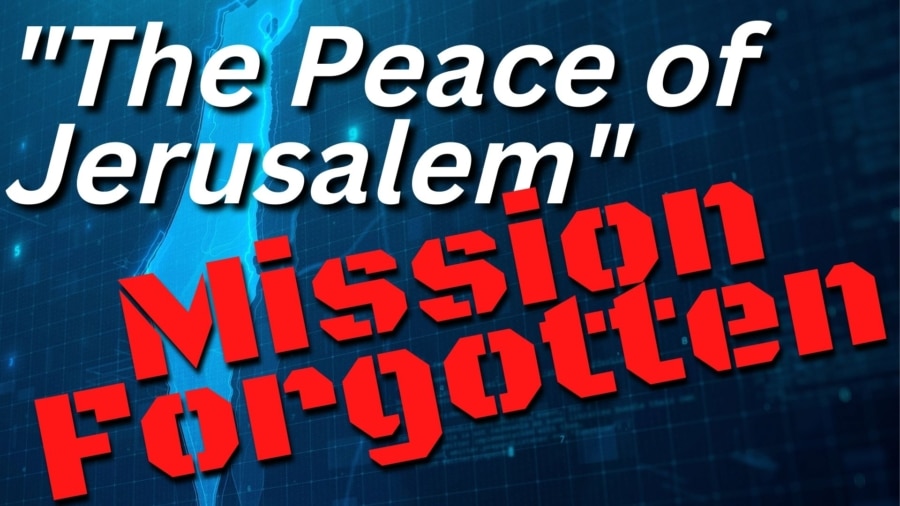
November 23, 2022
"Pray for The Peace of Jerusalem" -- Mission Forgotten
Gene Cunningham

November 16, 2022
"I will bless those who bless you" -- Mission Forgotten
Gene Cunningham


